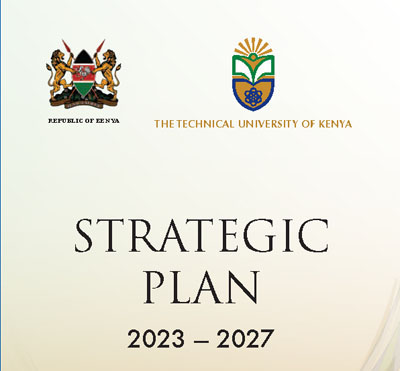The Technical University of Kenya, Department of Astronomy and Space Sciences launched a nanosatellite dubbed TUKSat-1, at Konza Technopolis on a 1U Model nanosatellite demo event organised by Kenya Space Agency (KSA).
The demo event provided an avenue to witness the functionality of the nanosatellite systems to a panel of judges, participating universities as well as the event conveners -KAS. As part of promotion of activities for the development of space systems, The Kenya Space Agency had initiated a research chair for the development of 1U nanosatellites. Subsequently, 5 public universities, to include TU-K, University of Nairobi, Jomo Kenyatta University of Science and Technology, Kenyatta University and Moi University who expressed interest in the project were award Sh1 million grant each.
Under the project the TU-K team comprising of students and academic staff developed the TUKSat-1 nanosatellite with an aim of providing Automated Information Services vessel tracking of boats and ships in Lake Victoria, that will assist in monitoring overfishing / illegal fishing, organized crime and improve emergency responses to vessels in distress. In his address, The Chief Guest, Colonel Hillary Kipkosgey, Ag Director General, Kenya Space Agency, said that through such projects and other initiatives KSA wishes to spur interest in research and development of space systems and applications in tertiary institutions.
He said he was happy that that noble goal was achieved and everyone will witness as students showcase their innovations. “Kenya is keen to develop its space system engineering capability. The pathway begins with the development of nanosatellite and micro satellite. That is why KSA value the work done by the talented and smart young men and women here today,” he said. Kipkosgey noted that space science and technology is still a novel field in our institutions of higher learning, as a result KSA is highly encouraged by the work done by the universities to develop suitable curricula that provide training and equipping of students with knowledge skills and competency in the field. Students of diverse fields of study including engineering, physical sciences, geographical information systems, environment sciences also joined the team of developers, to support the innovations for space applications.
A panel of judges, was tasked to review the project reports, witness the demonstrations and judge on the functionality of the innovations as well as follow the presentations to critic their presentations skills and gauge whether the project participants are knowledgeable about their project. It is expected that the teams will be ranked in order of performance and the best three will form a consortium that will benefit from a further a ward of Sh3 million grant from the KSA to develop a 3U nanosatellite. The best three teams will also present demonstrations of their projects to a host of dignitaries to include cabinet secretaries, government officials and vice-chancellors. The development and launch of TUKSat-1 nanosatellite showcases the potential of the university in building technology demonstration nanosatellite using local human resource and research infrastructure from scratch to maturity, and eventually launch a commercial nanosatellite for Kenya. Prof. Paul Baki, the Principal Investigator for the project said that in order to secure more funding for the development of nanosatellites, the project should consider securing partnership with other research institutions who would augment the grant and allow for further infrastructure development in the laboratories to ease project development.
“Going forward it might be important for the engagement with institutions who will provide their own budget, and I want to believe that you should not limit yourselves to capitation that you get from government, you might want partner with the National Research Fund who have the money for infrastructure development,” he said He also encouraged KSA to continuously engage competent academic staff who will also constantly engage students in research projects with aim of sharpening competency skills in space science.



